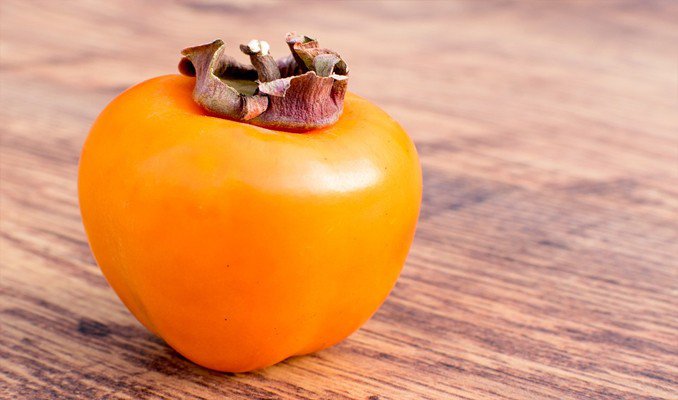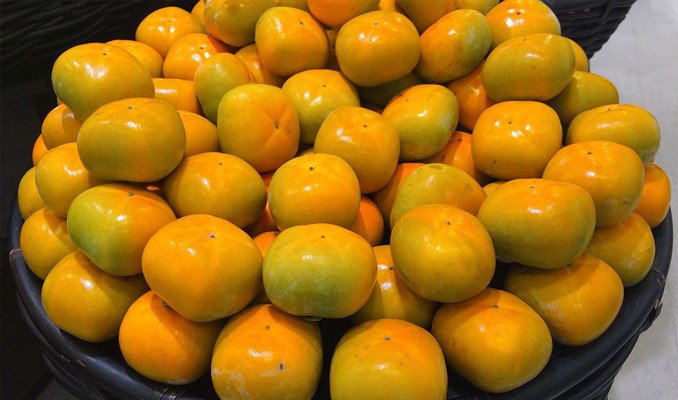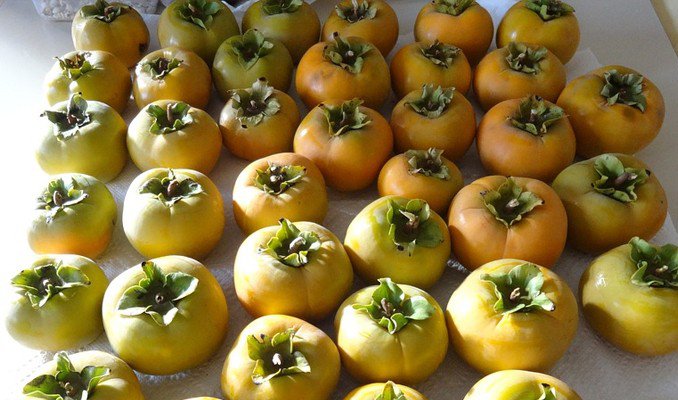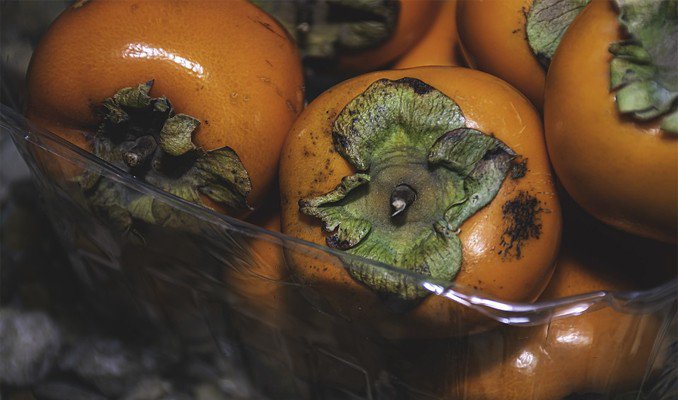A ripe persimmon is full of nutritions and very tasty. Due to their sweetness, they can be enjoyed as a dinner starter or a dessert. The fruit can be eaten raw or used to make smoothies, pudding, and other delicious foods. While they are a versatile fruit, persimmons tend to not last very long once they are ripe. Many people may buy plenty of them to store at home and wonder how long persimmons can last.
So how long do persimmons last? At room temperature, ripe persimmons will last about 1 to 2 days, while unripe persimmons will last for about 1 week. In the fridge, ripe persimmons will last about 5 days, while unripe persimmons will last up to 1 month. In the freezer, ripe whole or sliced persimmons will last up to 6 months. Persimmon puree will last up to 1 year in the freezer.
Above is just an estimated time of how long they last under normal conditions. Other factors such as storage temperature, when they are bought, and where they are stored will affect their true shelf life.
In this short guide, we’ll go through how long different persimmons will last, how to store them, how to tell when the fruit becomes bad, and how to keep them fresh longer. If that’s the information you’re looking for, keep reading.
Persimmons Shelf Life
| Room Temperature | Refrigerator | Freezer | |
|---|---|---|---|
| Whole (ripe) last | 1-2 Days | 5 Days | 6 Months |
| Whole (unripe) last | 7 Days | 1 Month | Not Recommended |
| Sliced (ripe) last | 1-2 Hours | 5-6 Days | 6 Months |
| Sliced (unripe) last | Not Recommended | ||
| Puree last | Not Recommended | Not Recommended | 1 Year |
How Long Do Persimmons Last?
At room temperature, riped persimmons will last for about 2 days. The temperature will have a huge effect on how long they can actually last though. The hotter it is, the faster they will go bad. On the other hand, the colder it is, the longer they will last.
For unripe persimmons, the fruit should last for about 1 week. It will take them about 2-4 days to ripened and then you’ll have a couple of days more before they start going bad.
In the fridge, riped persimmons will last about 5 days if they are stored properly. When in the fridge, the fruit should always be stored in a plastic bag or an airtight container. Never leave them stored in the fridge with other fruits such as apples and bananas or you’ll prematurely cause the persimmons to go bad.
As for unripe persimmons, storing them in the fridge will give them a shelf life of about 1 month. For the fruit to last this long, make sure they are stored in a sealed plastic bag or an airtight container. The lesser the fruit is exposed to the air, the longer they will last.
The freezer will be the best place to store persimmon fruits for the long-term. For whole and sliced persimmons, they will last for about 6 months. If you’re going to make a puree out of the persimmons, expect them to last for about 1 year.
How To Store Persimmons
At room temperature, riped persimmons should be stored in a basket or the pantry and away from direct sunlight. You should only store them at room temperature if the fruit is going to be eaten or used within a couple of days. Otherwise, it’s best to transfer them to the fridge to extend their shelf life.
For unripe persimmons, you can leave them in a basket and let it slowly ripen. They will take about 3 to 4 days to ripen. If you need them to ripen quicker, simply put them into a paper brown bag along with an apple or banana. These fruits will help the persimmons speed up the ripening process.
For persimmons that are cut or peeled, place them in a bowl and cover it with a cling wrapper. The wrapper will help prevent exposure to the air. It’s recommended to eat or use the fruit within a couple of hours. If not, they will start rotting and you’ll end up throwing them away.
In the fridge, for riped persimmons, they can either be cut, peeled or store as a whole fruit. When storing them in the fridge, make sure they are either stored in an airtight container or a plastic bag.
For storing whole persimmon fruit, avoid washing the fruit. Washing them will speed up the ripening of the fruit. Simply place the unwashed fruit into a resealable plastic bag. Alternatively, you can simply put them into the crisp section of the fridge. Make sure to not put other fruits such as apples, bananas, or other ethylene producing fruit with it. Otherwise, you’ll prematurely ripen the persimmons too quickly.
For unripe persimmons, storing them in the fridge is the same process as storing riped ones. You can either store them in a plastic bag or in the crisp section of the fridge.
Can You Freeze Persimmons?
Persimmons can be frozen if you’re planning to store them for the long term. They can be easily frozen as a whole fruit, sliced, or as a puree. Whole and sliced persimmons will stay fresh for 6 months. Persimmon puree will stay fresh for at least 1 year. Afterward, the quality of start decreasing slowly due to freezer burn.
All persimmons should be riped before they are frozen. Unripe persimmons will freeze fine, but the issue is when the fruit thaws. When it thaws, the fruit will no longer be able to ripen anymore. Therefore, you’ll end up with a bitter-tasting fruit.
When freezing whole persimmon fruits, they should be individually frozen first and then wrapped with a cling wrapper. This will ensure the fruit doesn’t get freezer burn. When the fruit is exposed to the air, it will start decreasing in quality.
For sliced persimmons, the best way to freeze them is to use the flash-freezing method first. This will prevent the fruit from sticking to each other when it freezes. Once they are frozen, transfer them to an airtight container or a heavy-duty freezer bag immediately. Keeping them out too long will cause the fruit to melt. As you freeze them again, they will become watery and they will stick to each other.
Can Persimmons Go Bad
Like any other fruit, persimmons do go bad. This fruit in particular will spoil much faster due to its high content of moisture and sugar in its flesh.
Persimmons that are left at hotter than normal temperatures will go bad quickly. The heat will cause the fruit to prematurely ripen which will cause them to spoil.
Persimmons that are left in the fridge can go bad as well. The cooler temperature will just slow down the ripening process, but it will not stop it completely. Therefore, if it’s left in the fridge for an extended amount of time, they will become overripen and will spoil.
How To Tell When Persimmons Is Bad
When persimmons go bad, there will be a couple of signs to look for. What to look for will be the appearance, smell, and taste of it.
Appearance – When the persimmon fruit goes bad, the fruit will start to have wrinkle skin. This is due to the flesh having soft spots that cause the skin to retract. When you see this, it doesn’t necessarily mean the fruit is bad and should be discarded. However, if the entire fruit seems to have soft spots all over, the fruit has reached past it’s prime and should be thrown away.
Another thing to look for is blemishes and mold growing on the fruit. A couple of black spots here and there, it is fine. However, if there are black spots with mold growing on them, it’s a sign the flesh is bad and it’s best to throw the entire fruit away.
Smell – Persimmons that are bad will have a pungent smell to it. Fresh persimmons will have a sweet aroma to it. If it smells anything other than the sweet smell, it’s probably bad and you should just discard the fruit.
Taste – Good persimmons will have a sweet, mild, and rich taste when they are riped. Bad persimmons will be the opposite with a bitter and sour taste. If it tastes like that, it’s best to throw the fruit out.
How To Keep Persimmons Fresh Longer
Buying Persimmons
Persimmons sold in grocery stores will usually be packaged separately and sold in a case. Sometimes, they will all be put together in a bin and sold that way. Either way, you’ll want to look for the best quality fruit.
One of the things to look for is the color of the persimmon fruit. They should be bright orange with bright colored leaves at the top. Sometimes, they will be a lighter shade of orange when it’s not riped yet. Any other colors such as dark orange or other darker shades of orange should not be bought. They are either going bad or have past their prime.
Another sign to look for in a quality persimmon is the appearance of it. Good quality fruit will have smooth skin all around. There should not be any blemishes or dark spots on them. However, if there are some small dark spots and the rest of the fruit seems fine, the fruit is still good to buy.
If the persimmon fruit has wrinkles around the entire fruit with soft spots, it has riped to the point where it’s starting to go bad. Buying these types of persimmons is fine if you’re going to eat them within a day or use them to make fruit smoothies or a dessert. Otherwise, it’s best to not buy them.
The last thing to check is the firmness of the fruit. Pick one up and gently press it. Good quality persimmons will be firm all around the entire fruit. Persimmons that’s about to go bad will have soft spots in different parts of the fruit. However, this doesn’t mean the fruit has gone bad and you can’t eat them, but it’s going bad and you have some time to eat or use it.
Handling Persimmons
Riped persimmons need to be handled gently. These fruits are very soft and any blunt force to them will cause their skin to break open. When the flesh is exposed to the air, it will rapidly start to go bad.
Unripened persimmons, on the other hand, doesn’t need to be handled delicately as riped one does. At this stage, the fruit is very firm and can be bundled and stored in a container together. However, if you’re storing them at room temperature, be cautious as the fruit ripe, they will begin to get soft. Leaving them stack on top of each other as they are ripening will cause the fruits to go bad quickly.
Related Questions
How many types of persimmons are there?
There are hundreds of varieties of persimmons available, but the two commonly found types of persimmons are the Fuyu and the Hachiya persimmons. Both originated in Asia and are now grown all over the world.
Why can’t you eat unripe persimmons?
You can, but it won’t taste very good. Unripe persimmons will have a bitter and chalky taste to it. For most people, the bitter taste will be enough for them to stop eating it any further.




